Search Results
Showing results 141 to 160 of 397
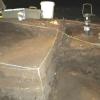
Looking Back Through Time
Source Institutions
In this activity, learners create their own archaeological profiles.
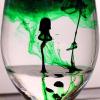
Floating and Falling Flows
Learners create beautiful fluid motion. They explore fluid dynamics, surface tension, solubility, and buoyancy while mixing liquids together.
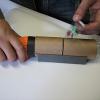
Camera Projector
Source Institutions
In this activity (posted on March 14, 2011), learners follow the steps to construct a camera projector to explore lenses and refraction.
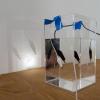
Convection Current
Source Institutions
In this activity, learners make their own heat waves in an aquarium.
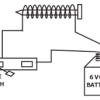
How Do We Convert Electrical Energy into Mechanical Energy?
Source Institutions
In this activity, learners make an electromagnet motor to demonstrate the most basic method of changing electrical energy into mechanical energy.
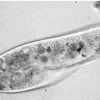
Observing Different Microbes
Source Institutions
In this activity, learners use a microscope to examine three different microbes: bacteria, yeast and paramecia. Educator will need to prepare the yeast solution one day before the activity.
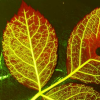
Lighting Up Celery Stalks
Source Institutions
In this activity, learners conduct a series of hands-on experiments that demonstrate how the working of plants' veins, known as capillary action, enables water to travel throughout the length of a pla
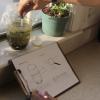
Single-Cell Life
Source Institutions
In this activity, learners create a soil and water model of a single-cell life environment and study living microorganisms.
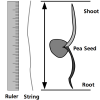
Easy PEAsy Seed Germination
Source Institutions
In this activity, learners determine the necessary conditions for pea seed germination.
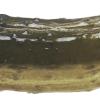
Glowing Pickle
Source Institutions
In this activity, high voltage is applied across a pickle to emit a yellow glow. This activity should only be conducted by skilled adults and is best suited as a demonstration.
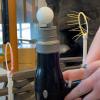
Bernoulli Obstacle Course
Source Institutions
In this activity, learners create their own obstacle course based on Bernoulli's Principle and try to get a floating ball from the start of their course to the finish line.
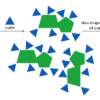
Chemistry in the Kitchen
Source Institutions
In this kitchen chemistry activity, learners explore the chemistry of crystals by making sugar crystals, consider a common chemical reaction type responsible for the rising of muffins and cake in the
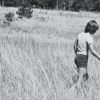
Animals in a Grassland
Source Institutions
In this outdoor, warm weather activity, learners use sweepnets to search a grassy area such as a large lawn or field, collecting small animals to find as many different kinds of animals as possible.
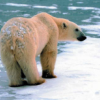
Water Quality and pH Levels in Aquatic Ecosystems
Source Institutions
In this fun and in depth hands-on experiment, learners test various liquid samples (distilled water, lemon juice, vinegar, and baking soda mixed with water) to determine their pH levels and identify e
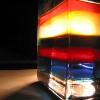
Density Rainbow and the Great Viscosity Race
Learners conduct two activities to investigate two properties of liquids: density and viscosity. In a clear container, learners stack 7 different liquids which will layer according to their density.
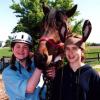
Animal Ears
Source Institutions
This activity (page 2 of the PDF under SciGirls Activity: Horse Ears) is a full inquiry investigation into animal behavior and communication.
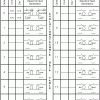
Evolutionstechnik or Selection and Variation in the Egyptian Origami Bird (Avis papyrus)
Source Institutions
In order to examine the random nature of mutations and natural selection, learners "breed" clutches of Egyptian Origami Birds (Avis papyrus) using random number generators (dice and coins) to mutate s
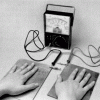
Hand Battery
Source Institutions
In this activity about chemistry and electricity, learners form a battery by placing their hands onto plates of different metals.
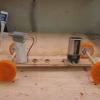
Propeller-Powered Car
Source Institutions
In this activity, learners construct cars that are powered by hand-made, electric propellers.

Super Soaker
Source Institutions
In this activity (page 1 of the PDF under SciGirls Activity: Bogs), learners will test cups full of potting soil, sand, and sphagnum moss to see which earth material is able to soak up the most water.
